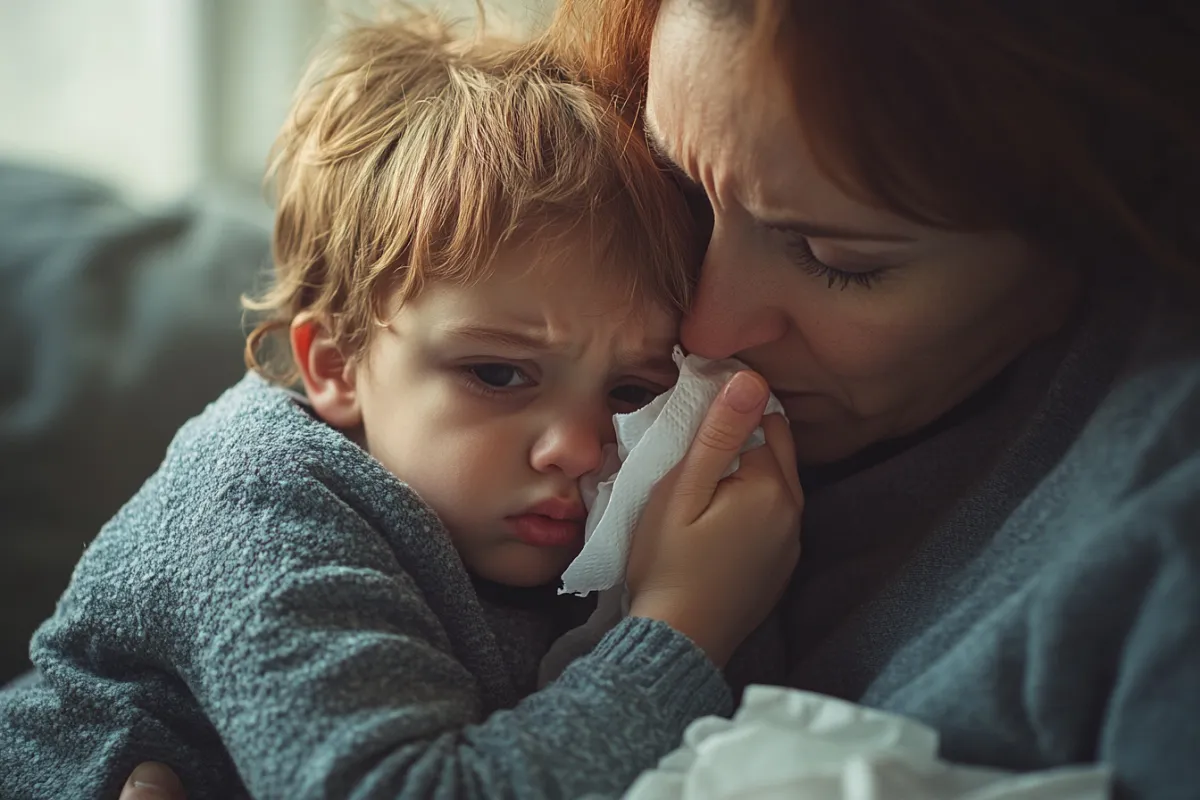Wellness Care That's All About You
Finally, a wellness practice that truly listens to you and treats you as an individual, not just another number. Jennifer Gaudet, NP provides personalized wellness solutions for hormone imbalance, weight management, allergies, and hair restoration, with the time and attention you deserve."

"Trusted by hundreds of satisfied clients in Wichita"


Genuinely Heard
Customized Care
Always Supported
THE PROBLEM
You've been searching for answers, but standard healthcare keeps falling short
You know something isn't right. You're tired all the time. Your mood swings are affecting your relationships. You're gaining weight despite your best efforts. Or you're dealing with allergies and hair issues that make you feel less like yourself.

You've seen doctors who spend 15 minutes with you and run basic tests. They tell you your symptoms are 'normal for your age.' Or they hand you a prescription that only masks the problem.
Does this sound familiar?
You've tried standard medical approaches that only treat symptoms, not root causes
Your doctor dismisses your concerns or rushes through appointments without really listening
You've been told your hormone levels are "normal" even though you feel anything but normal
You're frustrated with one-size-fits-all treatments that don't consider your unique situation
You feel like you're not being heard or taken seriously in your healthcare journey
You've lost confidence in your ability to feel energetic, healthy, and like yourself again
You're not alone, and it's not all in your head. Your symptoms are real, and there is a better way forward.
THE SOLUTION
Meet Jennifer Gaudet, NP - Your partner in personalized wellness

After years working in healthcare, Jennifer witnessed countless patients feeling dismissed and overlooked in their wellness journeys. She saw a system that prioritized efficiency over individualized care. Patients deserved better - they deserved to be truly heard, thoroughly evaluated, and treated as whole people, not just symptoms on a chart.
That's why Jennifer founded Everyday Wellness Wichita. Here, she takes the time to understand your complete health picture through comprehensive diagnostic testing. She gets to know you as a person - your lifestyle, your goals, your challenges. Then she creates treatment plans using effective, FDA-approved therapies that actually fit into your life.
Jennifer's approach combines the best of functional medicine with evidence-based treatments. She doesn't just hand you a prescription and send you on your way. She coaches you through your health journey, adjusting your care as you progress and celebrating your victories along the way.
As a certified Family Nurse Practitioner with her Master's degree from Walden University and certification through the American Association of Nurse Practitioners, Jennifer brings both clinical expertise and genuine compassion to every patient interaction. Her years of experience in emergency care, infusion therapy, and retail health have taught her that healing happens when patients feel truly understood and supported.



OUR SERVICES
Comprehensive wellness solutions tailored to you

Medical Weight Loss
Focus on health over appearance
Personalized plans based on your unique metabolism
Weekly goal-setting and progress tracking
Body composition scanning for accurate results
Sustainable lifestyle changes, not restrictive dieting

Bio-Identical Hormone Replacement Therapy
Reclaim your energy and vitality
Bio-identical hormones that are safer and more effective than synthetic options
Customized hormone optimization for men and women
Comprehensive testing to identify imbalances
Natural solutions to restore balance and confidence

Allergy Management
Convenient, comfortable relief
Sublingual immunotherapy - more comfortable than injections, especially for children
Non-invasive testing methods for accurate diagnosis
At-home treatment for convenient long-term resistance building
Personalized treatment protocols

Hair Restoration
Non-invasive solutions for confidence
Advanced ultrasound technology treatments
Essential oil-based maintenance products
Gentle, natural approach without harsh chemicals
Comprehensive scalp health evaluation

Medical Weight Loss
Focus on health over appearance
Personalized plans based on your unique metabolism
Weekly goal-setting and progress tracking
Body composition scanning for accurate results
Sustainable lifestyle changes, not restrictive dieting

BHRT
Reclaim your energy and vitality
Bio-identical hormones that are safer and more effective than synthetic options
Customized hormone optimization for men and women
Comprehensive testing to identify imbalances
Natural solutions to restore balance and confidence

Allergy Management
Convenient, comfortable relief
Sublingual immunotherapy - more comfortable than injections, especially for children
Non-invasive testing methods for accurate diagnosis
At-home treatment for convenient long-term resistance building
Personalized treatment protocols

Hair Restoration
Non-invasive solutions for confidence
Advanced ultrasound technology treatments
Essential oil-based maintenance products
Gentle, natural approach without harsh chemicals
Comprehensive scalp health evaluation
Our Services
Comprehensive wellness solutions tailored to you

Medical Weight Loss
Focus on health over appearance
Personalized plans based on your unique metabolism
Weekly goal-setting and progress tracking
Body composition scanning for accurate results
Sustainable lifestyle changes, not restrictive dieting

Bio-identical Hormone Replacement Therapy (BHRT) Reclaim your energy and vitality
Bio-identical hormones that are safer and more effective than synthetic options
Customized hormone optimization for men and women
Comprehensive testing to identify imbalances
Natural solutions to restore balance and confidence

Allergy Management Convenient, comfortable relief
Sublingual immunotherapy - more comfortable than injections, especially for children
Non-invasive testing methods for accurate diagnosis
At-home treatment for convenient long-term resistance building
Personalized treatment protocols

Hair Restoration Non-invasive solutions for confidence
Advanced ultrasound technology treatments
Essential oil-based maintenance products
Gentle, natural approach without harsh chemicals
Comprehensive scalp health evaluation
THE BENEFITS
Why Jennifer's personalized approach transforms your health journey
Treat the Person, Not Just the Problem
Jennifer spends real time getting to know you - your lifestyle, your goals, and your unique health picture. Through comprehensive diagnostic testing and thorough consultations, she creates treatment plans that actually fit your life. No more one-size-fits-all approaches that leave you feeling overlooked.
Address the why, not just the what
Jennifer doesn't just mask symptoms - she identifies and treats the underlying causes of your health concerns. Through advanced testing and a holistic approach, she helps you achieve lasting results that improve your energy, confidence, and overall quality of life.
You're never alone on your wellness journey
Unlike other practices that hand you a prescription and send you on your way, Jennifer coaches you through every step. She adjusts your care as you progress, celebrates your victories, and provides the guidance you need to stay on track. You'll always have an advocate who genuinely cares about your success.
THE PROCESS
Your path to feeling like your best self - simplified
Step 1:
Schedule Your Personalized Consultation
Jennifer takes time to truly listen to your concerns, understand your health history, and learn about your lifestyle and goals. This isn't a rushed appointment - it's a comprehensive conversation about your wellness journey and what you hope to achieve.
Step 2:
Comprehensive Testing & Customized Plan
Jennifer conducts thorough diagnostic testing to identify the root causes of your symptoms. She then creates a personalized treatment plan using effective, evidence-based therapies that fit seamlessly into your life. Every recommendation is tailored specifically to you.
Step 3:
Experience Your Health Transformation
With Jennifer's ongoing coaching and support, you'll start feeling more energetic, confident, and like yourself again. She monitors your progress, adjusts your care as needed, and celebrates every milestone on your journey to optimal wellness.
THE PROOF
Real people, real results - hear from Jennifer's clients

[Featured Testimonial]

[Featured Client]
[Title, Business]

Melinda M.

"Jennifer is genuinely kind and offers a safe and welcoming environment and ear to be vulnerable and open regarding your concerns and needs. She has the knowledge and desire to truly help. I highly recommend."

Aubrey

"If you’re looking to improve your health and wellness this is your place! Jennifer is professional, friendly, attentive, and extremely knowledgeable. I highly recommend her services to anyone."

Ronda

"Jennifer is amazing and very good at working with her patients and their specific needs. I highly recommend her services so far I’m down a good 40 pounds!"

Dreamcatcher86

"I love going to see Jen! Her clinic is always neat, clean, and inviting. She is easy to speak to, and most importantly, you feel heard. I also love she offers high-quality herbal products from a local business. I highly recommend Everyday Wellness!"
THE FEATURES
What Makes Everyday Wellness Wichita Different
[Feature 1 Name]
[Feature 1 Description][Feature 2 Name]
[Feature 2 Description]
[Feature 3 Name]
[Feature 3 Description]
[Feature 4 Name]
[Feature 4 Description][Feature 5 Name]
[Feature 5 Description]
[Feature 6 Name]
[Feature 6 Description]
You deserve healthcare that puts you first. Jennifer's approach ensures you get the time, attention, and personalized care that leads to real, lasting results.
FREQUENTLY ASKED QUESTIONS
Still have questions? We have answers!

How do I know if this approach is right for me?
If you're frustrated with quick appointments, surface-level treatments, or feeling dismissed by other providers, Jennifer's personalized approach is likely a great fit. During your consultation, she'll help you understand whether her services align with your health goals and concerns.
Do you accept insurance, and what should I expect regarding costs?
Jennifer does not accept insurance, which allows her to spend real time with you during appointments rather than rushing through visits to meet insurance requirements. This approach keeps her overhead costs lower, which helps keep your direct costs more affordable.
For your convenience, she can write prescriptions and lab orders that you can run through your insurance if you prefer. Jennifer provides fully transparent pricing upfront with no surprises, and she often bundles lab work into visit costs to keep things simple and affordable.
How much time will I need to commit to see results?
This varies by individual and condition, but most clients notice improvements within the first few weeks to months. Jennifer works with your schedule to create flexible treatment plans that fit your lifestyle, not the other way around.
Are the treatments you offer safe? What about side effects?
Jennifer uses evidence-based, FDA-approved therapies and carefully monitors each patient's response. She discusses potential side effects upfront and adjusts treatments as needed. Bio-identical hormones, for example, are often better tolerated than synthetic alternatives.
What's different about your diagnostic approach?
Jennifer conducts comprehensive testing in her clinic to get a complete picture of your health. Unlike typical practices that might miss underlying issues, she looks for root causes and patterns that others might overlook.
What if I've tried everything and nothing has worked?
Many of Jennifer's clients felt this way before finding her practice. The difference is her personalized approach that treats you as an individual, not a set of symptoms. She takes time to understand what hasn't worked and why, then creates a tailored plan based on your unique situation.
I'm told my symptoms are just "normal aging." How do you approach this?
Jennifer believes that while aging is natural, suffering isn't. Many symptoms attributed to "normal aging" - like fatigue, weight gain, mood changes, or decreased vitality - can actually be addressed through proper testing and personalized treatment. You don't have to accept feeling less than your best as inevitable.
The Pathway
Ready to feel like your best self again?
You deserve healthcare that puts you first. You deserve to be heard, understood, and supported throughout your wellness journey. Most importantly, you deserve to feel energetic, confident, and like yourself again.
Jennifer Gaudet and Everyday Wellness Wichita are here to make that happen. With her personalized approach, comprehensive testing, and ongoing coaching, you'll finally get the individualized care you've been searching for.
Don't wait another day to prioritize your health. Your best self is waiting.

Located in Wichita, Kansas
Flexible scheduling to accommodate your busy life
Comprehensive consultations, not rushed appointments
Transparent pricing with no surprise fees
"Trusted by hundreds of satisfied clients in Wichita"!
© 2025 | EverydayWellnessWichita.com | Terms | Privacy | Disclaimers | All Rights Reserved

